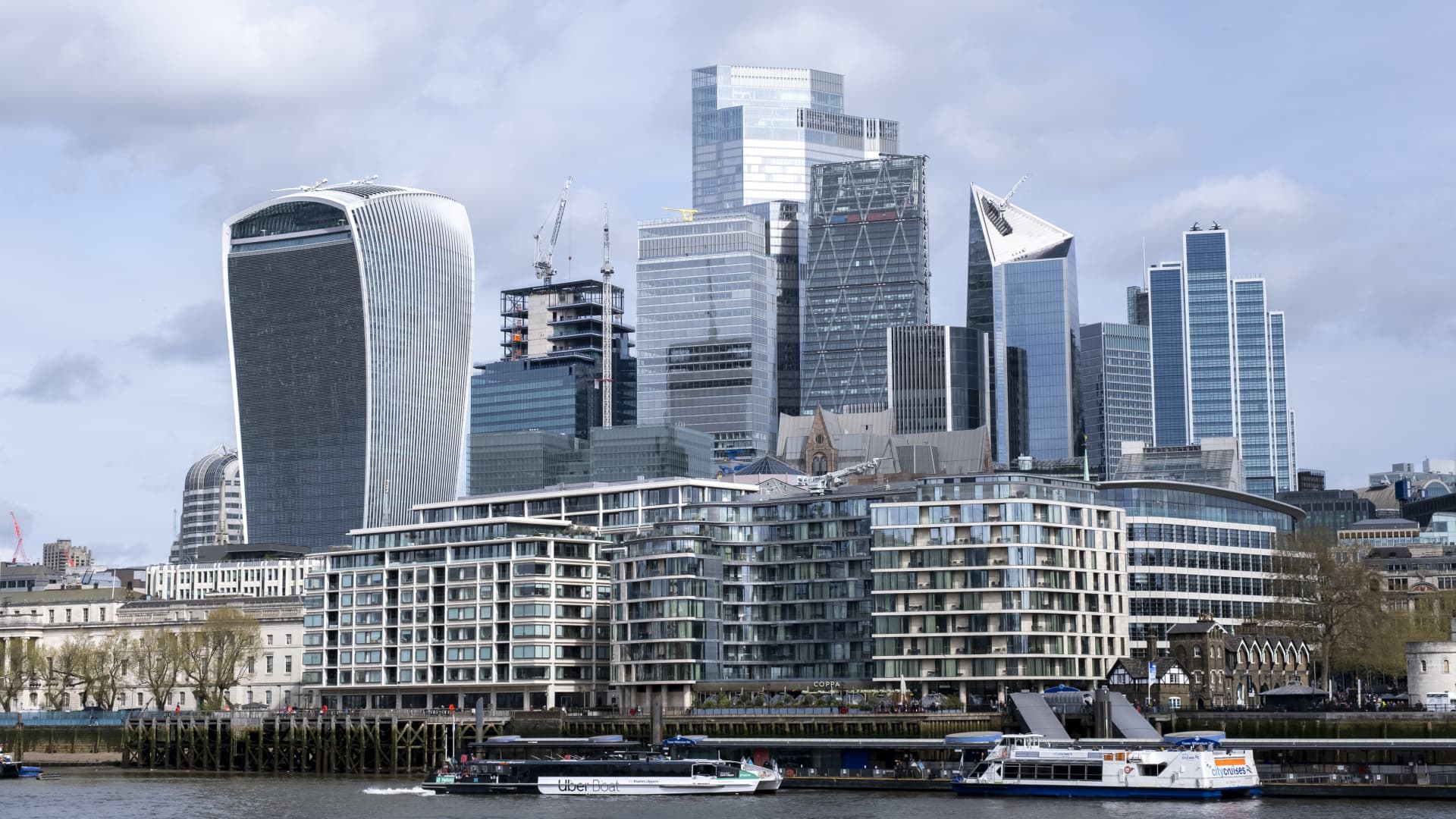City of London skyline on 6th March 2024 in London, United Kingdom.
Mike Kemp | In Pictures | Getty Images
LONDON — The Bank of England on Thursday announced a widely-expected hold on interest rates following its May meeting, as it said restrictive monetary policy was working to bring down inflation.
Members of the central bank’s Monetary Policy Committee voted 7-2 to hold, with the latter favoring a cut. In the prior meeting only one member voted for a cut.
The MPC nonetheless cautioned that indicators of inflation persistence “remain elevated,” highlighting that services inflation came in at 6% in March, and that there are “upside risks” to the near-term outlook from geopolitics.
It said it would monitor upcoming data releases closely. Two consumer price index prints are due before its next meeting on June 20.
The decision keeps the BOE’s key Bank Rate at 5.25%.
“We need to see more evidence that inflation will stay low before we can cut interest rates,” BOE Governor Andrew Bailey said in a statement reported by Reuters.
“I’m optimistic that things are moving in the right direction.”
Market anticipation is building for interest rate cuts to begin in the summer, with money markets fully pricing in a 25 basis point reduction in August and 50 basis points overall this year.
Some economists see a cut in June, and three or more cuts in 2024. That is largely because U.K. headline inflation is forecast to drop dramatically in April due to lower energy prices, from the current 3.2% to below the BOE’s 2% target, according to some projections.
In its Thursday release, the BOE said it expected it expected the U.K. gross domestic product to grow by 0.4% in the first quarter of the year, and by 0.2% in the second quarter. The economy fell into a shallow recession in the second half of 2023.
It meanwhile sees headline inflation close to 2% in the near-term, and expects it to increase slightly later in the year as the drag from the energy market wanes.
“While [economic] growth is increasing, the labor market continues to loosen. Ultimately, we think that will feed into weaker wage growth. We do expect that to come down across the course of this year,” Matthew Swannell, U.K. economist at BNP Paribas, told CNBC’s “Street Signs Europe” on Thursday.
“As well as that we see other costs coming down, particularly non-labor costs and those related to energy, passing through the supply chain and lowering services and goods prices, ultimately helping the Bank of England get inflation back towards the 2% mark.”
This is a breaking news story and will be updated shortly.

